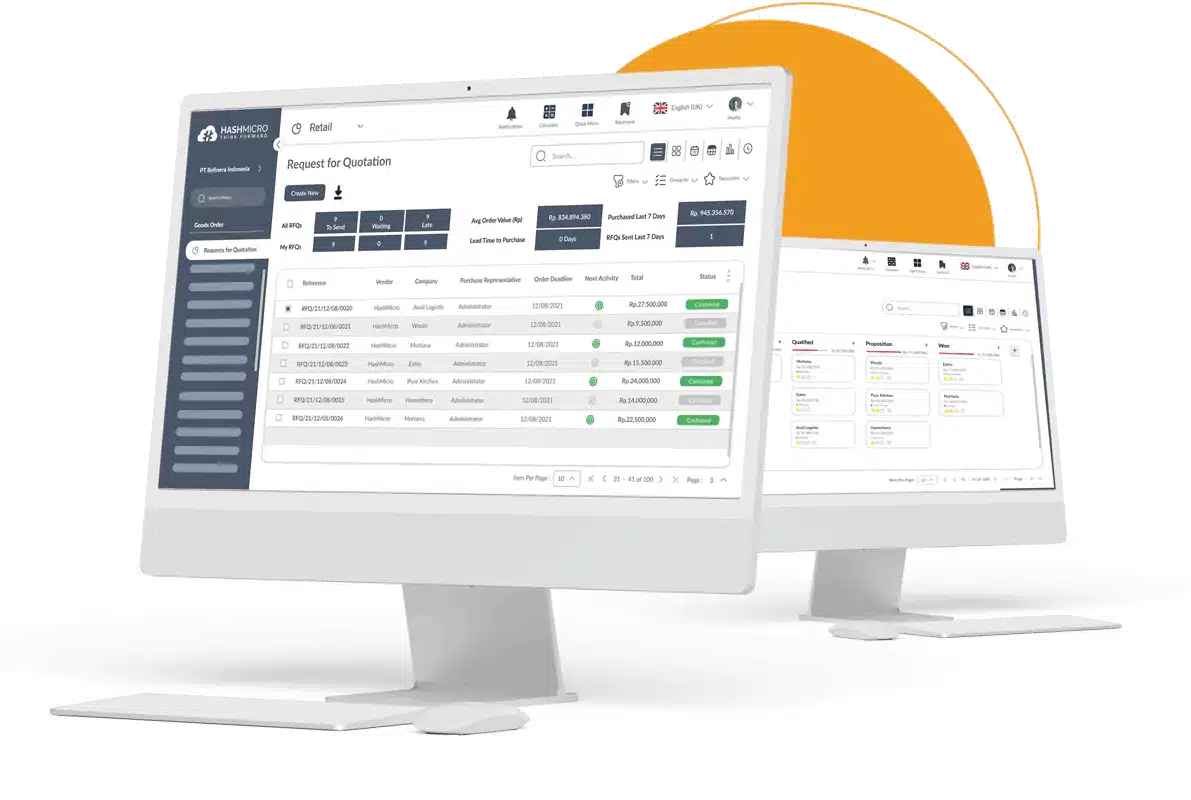Operating costs suffocating your finances? It can feel overwhelming, with rent, salaries, inventory, and marketing expenses piling up. But what if you could turn this around? Imagine reducing your operating costs without sacrificing the quality of your products or services.
Other than that, did you know that the retail industry is predicted to reach a staggering 96.02 billion USD in the Philippines by 2029? That’s even more reason to learn about optimizing operational expenses for your retail business!
There are many ways to reduce your operating costs effectively, such as better inventory management and renegotiating deals with suppliers. Businesses that use technology to automate and simplify their processes usually save a lot of money. Let’s explore how you can lower your operating expenses!
Key Takeaways
|
Table of Contents
What is Operating Expenses?
Operating expenses (OPEX) are the ongoing costs a business incurs to carry out its day-to-day operations. These expenses are crucial for the business to function, including rent, utilities, salaries, inventory, and marketing expenditures.
Unlike capital expenses (CAPEX), which refer to long-term investments in assets like property and equipment, operating expenses are typically short-term and must be paid regularly. You can easily manage both if you understand more about retail accounting.
Benefits of Reducing Operating Expenses
Reducing operating expenses can significantly enhance a business’s financial health, particularly for retailers facing tight margins. Furthermore, reducing operating costs often leads to improved operational efficiency. By scrutinizing expenditures, companies can identify inefficiencies and streamline processes.
The benefits you can expect are:
- Increased Profitability: Lowering operating costs directly boosts profit margins, allowing more revenue to flow to the bottom line. This can lead to a healthier financial position, especially when profits are reinvested into the business.
- Improved Cash Flow: Businesses experience better cash flow management and reduced ongoing costs with retail accounting software. This flexibility enables companies to invest in growth opportunities and meet financial obligations more easily.
- Enhanced Operational Efficiency: Scrutinizing and trimming expenses often reveals inefficiencies in processes. Streamlining operations not only reduces costs but also boosts productivity, allowing staff to focus on more critical tasks.
- Stronger Competitive Position: Businesses that effectively manage their operating expenses can offer better pricing or invest more in marketing and customer service, helping them stand out in a competitive market.
- Sustainable Growth: By continuously monitoring and managing operating costs, businesses can create a more sustainable growth model. This proactive approach ensures they remain resilient against market fluctuations.
Reducing operating expenses offers substantial benefits that can transform a business’s financial landscape. It increases profitability, improves cash flow, and boosts operational efficiency, all of which are crucial for sustainable growth.
7 Methods You Could Adopt to Minimize OPEX
Finally, effectively managing your retail business and reducing operating expenses (OPEX) is crucial for maintaining profitability and competitiveness. Here are seven methods you could adopt to minimize OPEX:
1. Conduct a Thorough Review of Your Operating Expenses
Start by evaluating your current operating expenses, including inventory, staffing, and utilities. Identify areas where you’re overspending. Inventory management, for instance, can be optimized by leveraging data to avoid overstocking, thus reducing markdowns and excess inventory costs. Utilize an inventory management system to better forecast demand and streamline stock levels.
2. Renegotiate Supplier Contracts
Re-evaluating your vendor terms can lead to substantial savings. Bulk purchasing, early payment discounts, or sourcing directly from manufacturers are just a few ways to reduce supply costs. Building long-term relationships with your suppliers will not only help you secure better pricing but also ensure a steady supply of essential products.
3. Automate Manual Tasks with Technology
Retail automation tools such as ERP systems and inventory management software can drastically reduce labor costs and increase efficiency. By automating tasks like sales tracking, inventory updates, and payroll management, you can free up valuable resources and reduce errors.
4. Reduce Energy Costs and Improve Sustainability
Sustainable practices such as energy-efficient lighting, reducing unnecessary packaging, and managing waste can lower operational expenses. Consult with your utility providers to explore ways to cut down on electricity and water usage.
5. Optimize Your Online and Offline Presence
An online store can boost your exposure and sales without the overhead costs of a second physical location. Utilize tools like Google My Business (GMB) and invest in SEO to increase visibility. Proper GMB listing management ensures that your business appears accurately in local searches, helping you attract more nearby customers without spending extra on ads. Integrating your online and offline sales channels ensures that you can scale your operations while keeping operating expenses in check.
6. Outsource Non-Core Functions
Consider outsourcing tasks like customer service, website management, or social media marketing. This allows you to focus on core business functions while reducing the expenses associated with hiring full-time staff.
7. Regularly Audit Your Expenses
Make it a habit to conduct expense audits regularly. This can help you uncover hidden or unnecessary expenses such as underutilized software subscriptions, overstaffing during off-peak hours, or insurance policies that no longer suit your needs.
By adopting these strategies, you can significantly reduce your operating expenses. Better yet, using the best expense tracking software can help you to sort and analyze many kinds of expenses in your business.
Manage Operating Expenses With HashMicro’s Retail Management Software
Conclusion
Reducing operating expense is essential for maintaining a profitable retail business. By implementing strategies such as optimizing inventory management and renegotiating supplier contracts, businesses can significantly enhance their financial health.
Effective management of these costs leads to improved cash flow, allowing companies to invest in growth opportunities and remain competitive in a challenging market. To further streamline your operations and reduce costs, consider using retail management software.
This powerful tool offers features designed to help you optimize stock levels, automate promotions, and more. Sign up for a free demo today to see how HashMicro can help transform your retail operations!
FAQ Around Retail Operating Expenses
-
What are operating costs in retail?
Operating costs in retail, or OPEX, are the ongoing expenses necessary for daily operations. These include rent, salaries, utilities, inventory costs, and marketing, all crucial for running a business efficiently.
-
What is an example of an operating cost?
An example of an operating cost is employee salaries, which are essential for maintaining staff and service levels. Other examples include rent for retail space and utility bills, all contributing to overall operational expenses.
-
How to reduce OpEx in retail?
Businesses can optimize inventory management and automate manual tasks to reduce OPEX in retail. Regular audits of expenses, renegotiating supplier contracts, and embracing technology also help streamline operations and lower costs.


























